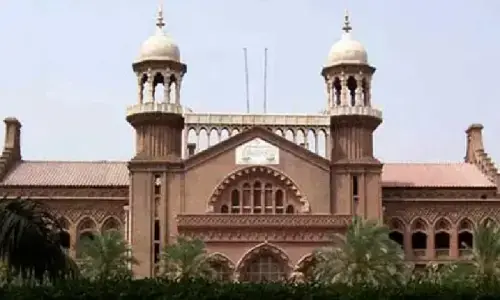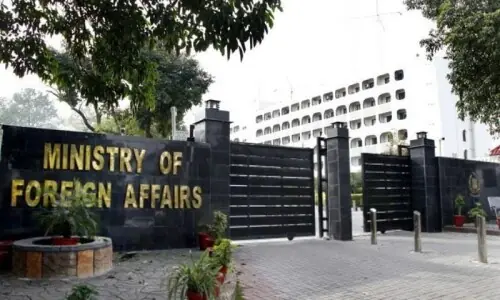LAHORE: The Ministry of Interior on Friday informed the Lahore High Court that Pakistan had not signed so far the Budapest Convention on cybercrime due to reservations shown by intelligence agencies.
In a written reply filed in a case against the availability of hate material on social media against the judiciary, the ministry stated that a meeting for signing the convention was held on Jan 22 last.
However, it said, the agencies did not support the proposal pointing out that Israel was also a signatory to it and Pakistan did not recognise Israel as a state.
Moreover, it said, India was seriously thinking of signing the Budapest Convention due to which Pakistan needed to be very careful for opting such possibilities.
The ministry stated that a committee had been constituted comprising all stakeholders, including law enforcement agencies and the Ministry of Foreign Affairs, to go clause by clause of all sections of the convention.
LHC seeks govt reply on leak of CJP’s letter
In a separate reply, the Ministry of Foreign Affairs also told the court that the Budapest Convention was highly intrusive and would compromise our data. It said many countries outside Europe, including China, Russia, Indonesia, Malaysia and Singapore, were of the opinion that the convention was a regional initiative by the EU and severely compromised data sovereignty.
The reply said another convention on cybercrime under the auspices of the UN was being deliberated at and Pakistan had supported the idea at the UN General Assembly.
The ministry further stated that Pakistan had so far signed Mutual Legal Assistance (MLA) agreements with Sri Lanka (2006), Uzbekistan (2007), China (2010) and Kazakhstan (2001).
Chief Justice Mamoon Rashid Sheikh adjourned hearing and sought further arguments from the petitioner’s counsel in light of the replies by the ministries.
Meanwhile, the chief justice also sought a reply from the Punjab government about leak of an official letter on social media about security for Chief Justice of Pakistan Gulzar Ahmad.
Advocate Azhar Siddique filed a petition on the matter and contended that the CJP had never sought security from the government. However, he said, the government itself issued a notification about the chief justice’s security cavalcade and made it viral on social media apparently to scandalise the judiciary. The lawyer argued that the leak of the government’s notification was also a violation of cybercrime laws and responsible needed to be brought to book.
Published in Dawn, February 1st, 2020

































